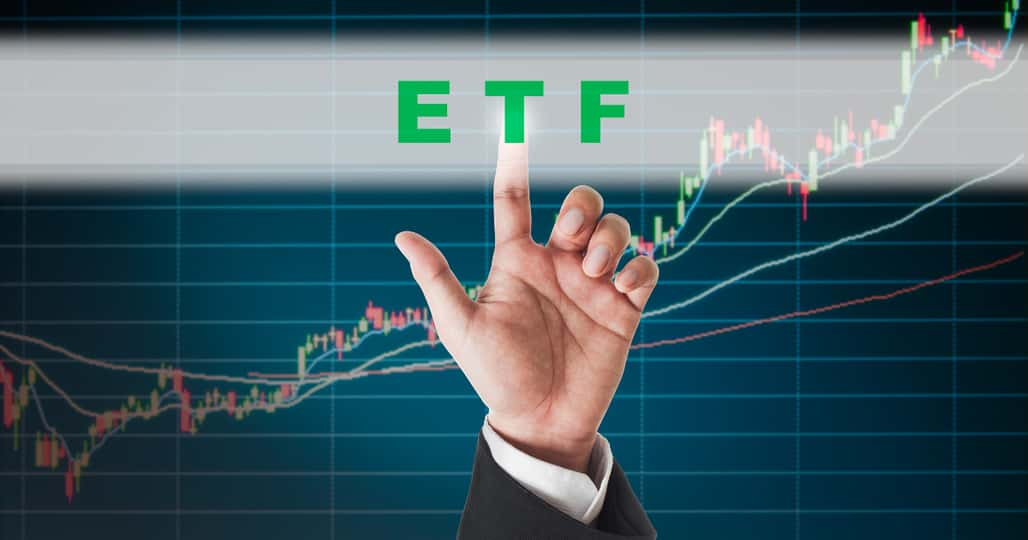As the volatility and uncertainties in the domestic market rise, it could be prudent to shift your portfolio attention and capitalize on the thriving trends of emerging markets and developing economies. They have high potential in the upcoming time with their broadening role and promising growth.
Given the background, investing in fundamentally sound emerging markets ETFs iShares MSCI Emerging Index Fund (EEM - Get Rating), iShares Core MSCI Emerging Markets ETF (IEMG - Get Rating), and Vanguard FTSE Emerging Markets ETF (VWO - Get Rating) could be wise to diversify your portfolio in 2025.
A variety of factors influenced the global economy in 2024, including disruptions in the production and shipping of commodities, Federal Reserve rate cuts, and significant investments in cutting-edge technologies. The International Monetary Fund (IMF) forecasts global economic growth of 3.2% in both 2024 and 2025.
Advanced economies are expected to project growth at 1.8%, whereas emerging markets and developing economies are set to surpass the advanced economies with a 4.2% growth rate during 2024 and 2025. The role of emerging markets is continuously expanding with rapid industrialization and urbanization, resulting in increased consumer spending and investment opportunities.
Over the coming decade, emerging markets’ contribution to global economic growth is expected to reach around 65% by 2035, strongly shaping the global economy. Also, nine of the key emerging markets are expected to be ranked among the 20 largest economies. This is fueled by supportive demographics and technological developments that could boost emerging markets’ productivity and economic growth.
Therefore, considering the current market trends and landscape, investing in emerging market ETFs can be a good strategy to capture robust growth, diversify portfolios, and yield long-term advantages.
With that in mind, let’s delve deeper into the fundamentals of the top three Emerging Markets Equities ETFs, starting with the third choice.
ETF #3: iShares MSCI Emerging Index Fund (EEM - Get Rating)
EEM is an ETF launched by BlackRock, Inc. and is managed by BlackRock Fund Advisors. The fund invests in emerging-market public equity markets and stocks of companies operating across diversified sectors. It targets growth and value stocks with diverse market capitalizations. EEM tracks the performance of the MSCI Emerging Markets Index.
With $17.29 billion in AUM, EEM’s top holdings include Taiwan Semiconductor Manufacturing Co., Ltd. (TSM) with a 10.34% weighting, followed by Tencent Holdings Ltd. (TCEHY) at 4.37%, and Samsung Electronics Co., Ltd. and Alibaba Group Holding Limited (BABA) at 2.23% and 2.17%, respectively.
The ETF has a total of 1199 holdings, with its top 10 assets comprising 27.11% of its AUM. EEM’s expense ratio is 0.70%, higher than the category average of 0.51%.
EEM has paid dividends for 18 consecutive years. The ETF pays a $1.02 per share dividend annually, which translates to a 2.40% yield on the current price. Its dividend payments have grown at a CAGR of 2.4% over the past three years.
EEM has surged 6% over the past year to close the last trading session at $42.30. Also, it has a beta of 0.74. The fund’s NAV was $42.38 as of December 27, 2024.
EEM’s POWR Ratings reflect its bright outlook. The fund has an overall rating of B, translating to a Buy in our proprietary rating system. The POWR Ratings are calculated by considering 118 different factors, with each factor weighted to an optimal degree.
EEM has a B grade for Trade and Buy & Hold. Within the B-rated Emerging Markets Equities ETFs group, it is ranked #13 of the 101 ETFs.
Click here to check other EEM’s POWR Ratings.
ETF #2: iShares Core MSCI Emerging Markets ETF (IEMG - Get Rating)
IEMG was launched by BlackRock and offers outstanding coverage of emerging markets. The ETF provides comprehensive exposure by emphasizing smaller firms in the portfolio. IEMG seeks to track the MSCI Emerging Markets Investable Market Index and uses a representative sampling method.
The fund has an AUM of $79.25 billion. Its top holdings include TSM with a 9.03% weighting, followed by TCEHY at a 3.82% weighting, Samsung Electronics Co., Ltd. with a 1.95% weight, and BABA at 1.90%. IEMG has a total of 2763 holdings, with the top 10 assets comprising 22.95% of its AUM.
The fund has an expense ratio of 0.09%, lower than the category average of 0.51%. Over the past three months, IEMG fund flows came in at $1.32 billion, and $725.30 million for the past six months. Also, it has a beta of 0.75.
IEMG pays a $1.67 annual dividend yielding 3.17% at the current share price. Its dividends have increased at a 3.6% CAGR over the past five years and a 4.4% CAGR over the past ten years. The ETF has a record of paying dividends for 12 consecutive years.
IEMG has gained 5.1% over the past year to close the last trading session at $52.74. The fund has a NAV of $52.77 as of December 27, 2024.
IEMG’s POWR Ratings reflect its strong prospects. The ETF has an overall rating of B, which translates to a Buy in our proprietary rating system.
IEMG has a B grade for Buy & Hold and Trade. The fund is ranked #12 in the list of 101 ETFs in the Emerging Markets Equities ETFs group.
To access all the POWR Ratings for IEMG, click here.
ETF #1: Vanguard FTSE Emerging Markets ETF (VWO - Get Rating)
VWO is launched and managed by The Vanguard Group, Inc. The fund targets the public equity markets of global emerging regions like China, Brazil, Taiwan, and South Africa and invests across diversified sectors. The fund tracks the performance of the FTSE Custom Emerging Markets All Cap China A Inclusion Net Tax Index by using a representative sampling technique.
With $80.57 billion in AUM, VWO’s top holdings consist of TSM at an 8.40% weighting, TCEHY at 3.60% weight, BABA at 2.32%, and Meituan Class B at 1.49%. The ETF has a total of 4843 holdings, with its top 10 assets comprising 23.99% of its AUM.
The fund has an expense ratio of 0.08%, compared to the category average of 0.51%. VWO fund inflows were $821.78 million over the past month and $1.89 billion over the past three months. It has a beta of 0.69.
VWO pays an annual dividend of $1.41, which translates to a 3.17% yield at the current price level. Moreover, the fund’s dividend payouts have increased at a CAGR of 2.7% over the past three years. VWO has paid dividends for 17 consecutive years.
VWO has surged 2% over the past six months and 9.2% over the past year to close the last trading session at $44.50. The fund’s NAV was $44.51 as of December 27, 2024.
VWO’s sound fundamentals are reflected in its POWR Ratings. The fund has an overall rating of B, which translates to a Buy in our proprietary rating system.
The fund has an A grade for Peer. It also has a B for Trade and Buy & Hold. Of the 101 ETFs in the same group, VWO is ranked #11.
Click here to see all the VWO ratings.
What To Do Next?
Get your hands on this special report with 3 low priced companies with tremendous upside potential even in today’s volatile markets:
3 Stocks to DOUBLE This Year >
Want More Great Investing Ideas?
VWO shares were trading at $44.11 per share on Monday morning, down $0.39 (-0.88%). Year-to-date, VWO has gained 10.77%, versus a 25.13% rise in the benchmark S&P 500 index during the same period.
About the Author: Rjkumari Saxena

Rajkumari started her career as a writer but gradually shifted her focus to financial journalism, leveraging her educational background in Commerce. Fascinated by the interplay of business and economic shifts in equities, she aspires to evolve as an analyst. With a knack for simplifying complex financial concepts, her mission is to empower investors with insights that lead to profitable decisions. More...
More Resources for the Stocks in this Article
| Ticker | POWR Rating | Industry Rank | Rank in Industry |
| VWO | Get Rating | Get Rating | Get Rating |
| IEMG | Get Rating | Get Rating | Get Rating |
| EEM | Get Rating | Get Rating | Get Rating |






